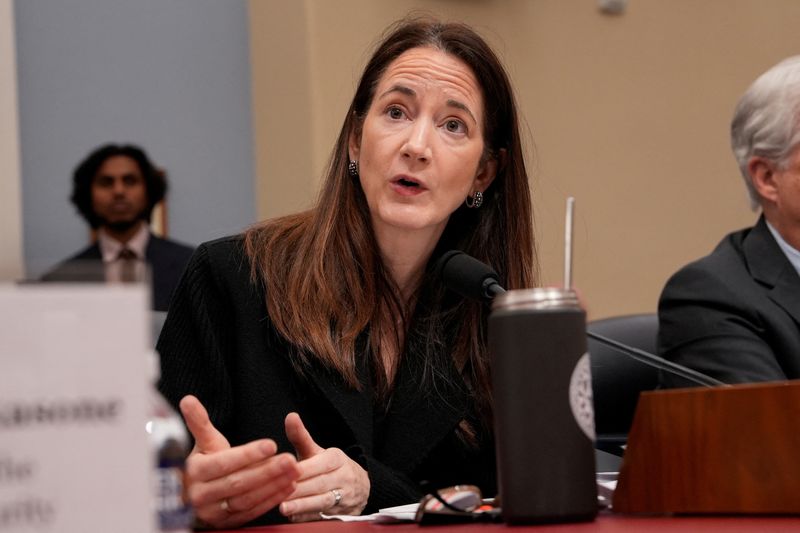By Patricia Zengerle, Jonathan Landay and Michael Martina
WASHINGTON (Reuters) -China will deepen its cooperation with Russia to try to challenge the United States despite international condemnation of the invasion of Ukraine, the leaders of U.S. intelligence agencies said on Wednesday.
"Despite global backlash over Russia's invasion of Ukraine, China will maintain its diplomatic, defense, economic, and technology cooperation with Russia to continue trying to challenge the United States, even as it will limit public support," they said in a threat assessment released as the Senate Intelligence Committee held its annual hearing on worldwide threats to U.S. security.
The report largely focused on threats from China and Russia, assessing that China will continue to intimidate rivals in the South China Sea and that it will build on actions from 2022, which could include more Taiwan Strait crossings or missile overflights of Taiwan.
"Perhaps needless to say, the People's Republic of China, which is increasingly challenging the United States, economically, technologically, politically and militarily, around the world remains our unparalleled priority," said Director of National Intelligence Avril Haines, the main intelligence adviser to President Joe Biden.
To fulfill Chinese leader Xi Jinping's vision of making China a major power, the Chinese Communist Party (CCP) "is increasingly convinced that it can only do so at the expense of U.S. power and influence," Haines said.
However, she said U.S. intelligence assesses that Beijing believes it benefits from a stable relationship, despite Xi's recent sharp criticism of the United States.
Xi blamed the west for China's economic difficulties in a speech on Monday in which he accused the United States of leading an international effort to contain China.
During questioning, Senator Angus King, an independent who caucuses with Democrats, asked for Haines' view of Beijing's ties with Moscow. "Is it a temporary marriage of convenience or is it a long-term love affair?" he asked.
"It is continuing to deepen," Haines responded, adding that she would hesitate to characterize Beijing-Moscow ties as a love affair. "There are some limitations that we would see on where they would go in that partnership. We don't see them becoming allies the way we are with allies in NATO, but nevertheless, we do see increasing (cooperation) across every sector," she said.

The report said Russia probably does not seek conflict with the United States and NATO, but the war in Ukraine carries "great risk" of that, and that there is real potential for Russia's military failures in Ukraine to hurt Russian President Vladimir Putin's domestic standing, raising the potential for escalation.
Haines described "a grinding, attritional war" in Ukraine and said U.S. intelligence does not foresee the Russian military recovering enough this year to make major territorial gains.
